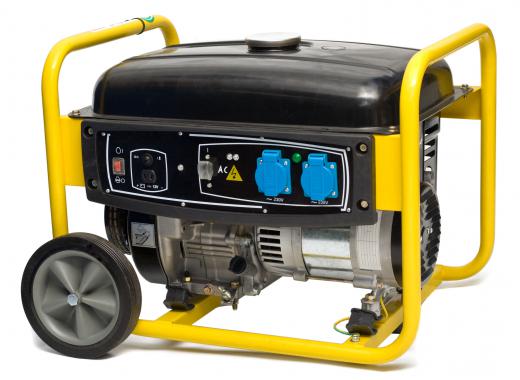Generator load is the maximum amount of power that a generator can provide. Knowing generator load is important for the safe operation of the generator and of any appliances that are running off the generator. Generators should be purchased with a high enough load to handle all of the appliances that will be running off the generator at any one time. To determine the generator load needed, it is important for one to determine what level of voltage is required.
Choosing an electric generator or gas generator with the appropriate load capability has several benefits. Only a properly sized generator will ensure continuing operation of the appliances during a power outage. Operating under generator load also means that there is no chance of overloading the system. The generator will last longer and require less maintenance if it is properly sized for the appliances it will be used to operate.

Most home appliances operate on 120 volts of electricity, although some home appliances, such as clothing dryers and kitchen ovens, might operate on 240 volts. Homes are wired with special circuits to handle the needs of a 240-volt appliance. If any of these appliances would be needed during a power outage, the generator must be capable of handling this level of load. Generators without a 240-volt circuit should be considered for purchase only when there will never be a need to operate an appliance that needs that level of current.

To determine the needed generator load, it is important for one to conduct an evaluation of what appliances will be needed in the event of a power loss. Some appliances might need to run without stopping, and others might be needed only intermittently. For example, the lights in a home or building might be required for the entire duration of a power loss, but the radio, dishwasher, televison and other appliances or devices might be needed only occasionally.
After the inventory is complete, it is possible to determine the maximum amount of voltage that will be needed at any one time. A generator should be purchased that is sufficient to meet the highest electric load that will be necessary at any one time. It is important that while the generator is in operation, the amount of demand placed on the generator is monitored. Overloading the generator could result in damage to the generator as well as to the appliances that are connected to it.
